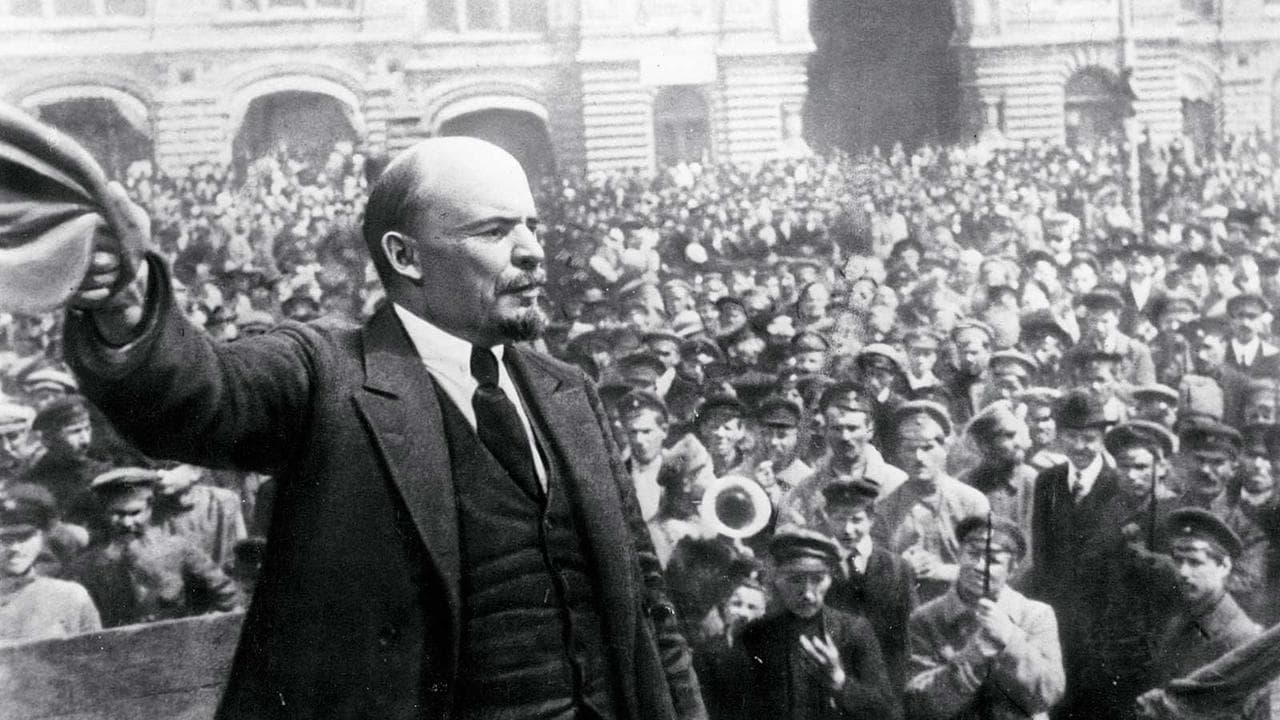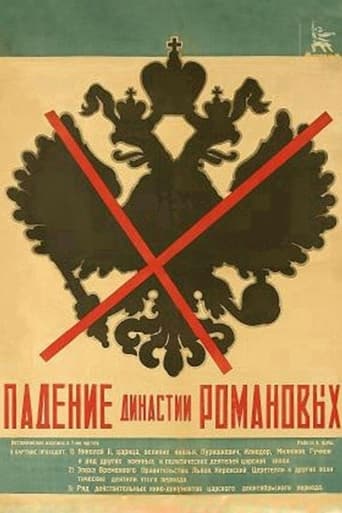

Fall of the Romanov Dynasty seems to not know what it wants to be as a film. Presenting a chronological set of not uninteresting documentary footage, Dynasty fails to present historical information in anything but the most barest of terms. On the other hand, the film completely lacks in dramatization or characterization, and so apparently styles itself as a historical narrative. The entire structure of the film is characterized by strange choices. The opening sequences, comparing the lives of the aristocracy and the lower classes in Tsarist Russia, are a fine exposition, but consume a whopping third of the total screen-time without much variation. Dynasty suggests that WWI was some sort of money-making venture among the ruling classes and industrialists of Europe, which leads one to believe one is watching a work of socialist propaganda. However, when the revolution is finally reached, it is depicted almost entirely as a reactionary movement to the horrors of the war and the inabilities of the monarchy rather than an ideological battle. The images of mobilization and war are the most exciting ones, and in that sense, fail to fulfill the apparent goal of denouncing imperial injustices. Perhaps the strangest element is the choice to relegate the Bolshevik revolution to the final three minutes of the film: we see Lenin denouncing the provisional government, and then a cut to credits. It may be the case that film-goers had tired of the revolutionary story by 1927, but this eliminates what is probably the most compelling part of Russia's role in WWI. The film's strengths lie in the candid footage; we see the big names – Nicholas II, Kerensky, Lenin – in living movement, and perhaps the only view that many Russians would have gotten of them. Images of imperial and religious ceremonies are well juxtaposed with shots of toiling peasants and marching protesters in a sort of a slide show of pre- and post-revolutionary norms. On the whole, though, Fall of the Romanov Dynasty is rather directionless, and fails to either present a compelling revolutionary ideology or a historical reflection of any depth.
... View MoreLet's get this straight: this is pretty much straight line Marxist history as of 1928, to which I say "So what?" It takes decades to sort out the passions of the events and get a reasonable take on them and even then passions will continue to inflame matters. Consider the discussions of the American Civil War as of 1960. I don't believe that the First World War was started to maximize profits, but as a sort of series of events that would be a comedy of errors if they weren't so horrid.What we do have here, and what should be applauded, is some great historical clips of Russia from before the First World War -- and most of the pre-War film studios were so devastated that many students of cinema aren't even aware there was an advanced Russian film industry before the Great War -- which are beautifully edited. Esfir Shub was one of the people surrounding Dziga Vertov, who was a practicing and practical director while the Academicians were writing texts to demonstrate to the lumpen-proletariat why they should appreciate their editing. As a result, this becomes a well-illustrated history text which tells its story in a comprehensible and engaging fashion. It is the model for how such documentaries would be done for decades, and still are.
... View MoreThis insight into the events leading up to the 1917 revolution wasn't anywhere near as interesting as I thought it was going to be, largely perhaps because it was presumably made under the watchful eye of the Communist dictatorship meaning that what ended up on screen was always going to be one sided. Although it begins by showing the various elements of the Russian political, religious and societal landscape, the film does tend to focus more on the little man and the peasants and the impact the Great War had on the possibility for a revolution to take place. The old order are largely portrayed as malevolently grinning buffoons while the likes of Lenin are barely glimpsed at all. And while we see many shots of large crowds gathered in the streets of St. Petersburg, we see no riots or bloodshed and, essentially, fail to really get a flavour of the times and of how much excitement must have been buzzing around the city streets in those heady days. Those poor mugs must really have believed the days of utopian bliss had arrived
... View MoreFascinating collection of footage from the years 1913-17 focusing on the Russian Revolution. With an introduction by a Russian historian and cultural expert, it exposed a number of myths about the revolution and in particular, the Bolsheviks.With this gentleman providing a commentary over the footage that's happening and explaining the propaganda behind not only this film, but the three films that I'd seen by Eisentein, presenting them in a completely different light. Filmwise it wasn't anything special, however the informed commentary was riveting and helps you to understand a bit more about what actually happened, even if it only touches the surface.Watched in conjunction with Eisenstein's October 1917, Strike and Battleship Potemkin, these are essential viewing.
... View More